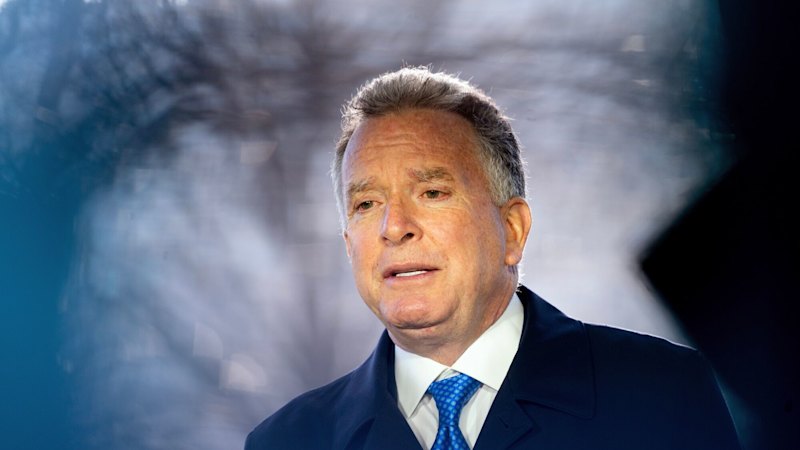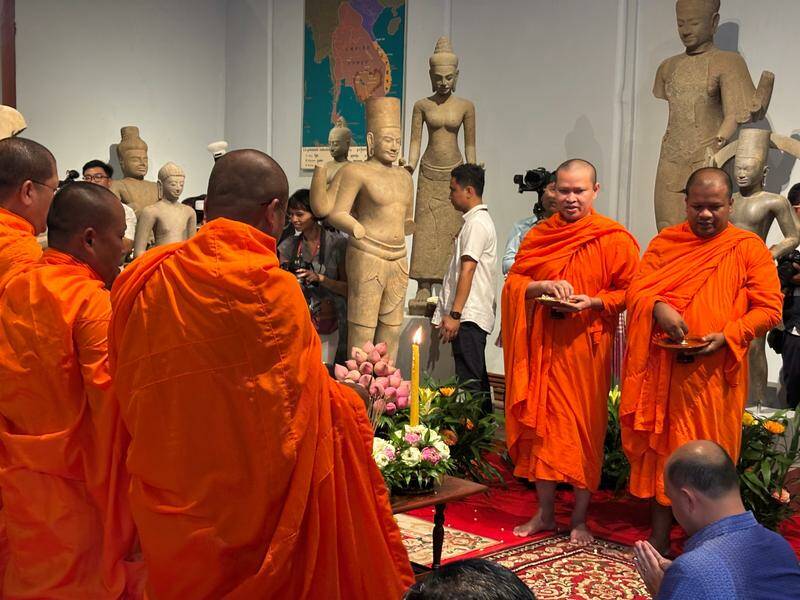
A recently leaked phone call has revealed that Steve Witkoff, the US presidential envoy, engaged in discussions with Yuri Ushakov, a senior Kremlin official, about strategies to foster collaboration between Russia and the United States regarding Ukraine. The conversation, which took place on October 14, 2023, suggested that Vladimir Putin should approach Donald Trump with a plan reminiscent of the recently celebrated Gaza peace deal.
During the five-minute call, Witkoff proposed using the Gaza agreement as a template for a similar initiative in Ukraine, stating, “We put a 20-point Trump plan together that was 20 points for peace, and I’m thinking maybe we do the same thing with you.” This exchange offers a glimpse into Witkoff’s approach to diplomatic negotiations with Russia and hints at the origin of the new 28-point peace proposal that has since emerged.
Trump, addressing the media, described Witkoff’s outreach as “a very standard form of negotiation.” However, opinions diverged sharply among lawmakers in the US. Republican Congressman Don Bacon criticized Witkoff, asserting that the transcript revealed a bias that could undermine US negotiations with Russia. Bacon stated, “He cannot be trusted to lead these negotiations. Would a Russian paid agent do less than he?”
Insights into US-Russia Negotiation Tactics
The details from the Witkoff-Ushakov call provide a rare insight into the evolving tactics employed by the US in its diplomatic efforts with Russia. The conversation indicates that Witkoff has been engaging directly with Russian officials to shape a framework for peace.
Putin has expressed his belief that the US-led plan could serve as a foundation for a peace settlement. He acknowledged during a meeting of the Russian Security Council that while the 28-point plan had not been thoroughly discussed with the US, Moscow had received a copy.
As Witkoff continued to navigate the complexities of US-Russia relations, he emphasized his respect for Putin and conveyed a belief that the Russian leader has always desired a peace deal. Witkoff remarked, “Zelensky is coming to the White House on Friday… if possible, we have the call with your boss before that Friday meeting.” This statement underscores the urgency of the discussions and the strategic planning involved.
Ushakov responded positively to Witkoff’s suggestions, indicating that it would be beneficial for Putin to reach out to Trump. Witkoff proposed that Putin congratulate Trump on the Gaza deal and position himself as a collaborator in peace efforts. “Maybe he says to President Trump: you know, Steve and Yuri discussed a very similar 20-point plan to peace,” Witkoff suggested.
Following this exchange, Trump and Putin conducted a call two days later, which Trump described as “very productive.” This conversation was pivotal, as it paved the way for further discussions about a potential summit in Budapest.
Pressure on Ukraine and Diplomatic Ramifications
As negotiations continue, Ukraine has faced considerable pressure to accept the proposal developed during Witkoff’s discussions with Russian counterparts. US officials have indicated that critical military intelligence support could be withdrawn if Ukraine’s President Volodymyr Zelensky does not agree to the terms laid out in the peace proposal.
The initial conditions proposed by the US included Ukraine’s withdrawal from certain areas of the eastern Donbas region and recognition of Russia’s claims over Crimea, Luhansk, and Donetsk. These terms have been contentious, as Ukraine and its European allies insist that any cessation of hostilities should maintain current territorial lines.
Throughout these negotiations, Witkoff communicated a sense of optimism, stating, “Me to you, I know what it’s going to take to get a peace deal done.” His remarks suggest a willingness to explore various avenues for resolution, including potential land swaps.
As this diplomatic landscape unfolds, the implications of Witkoff’s interactions with both Russian officials and the Trump administration remain significant. The outcome of these negotiations could shape the future of US-Russia relations and the broader geopolitical climate in Eastern Europe.






